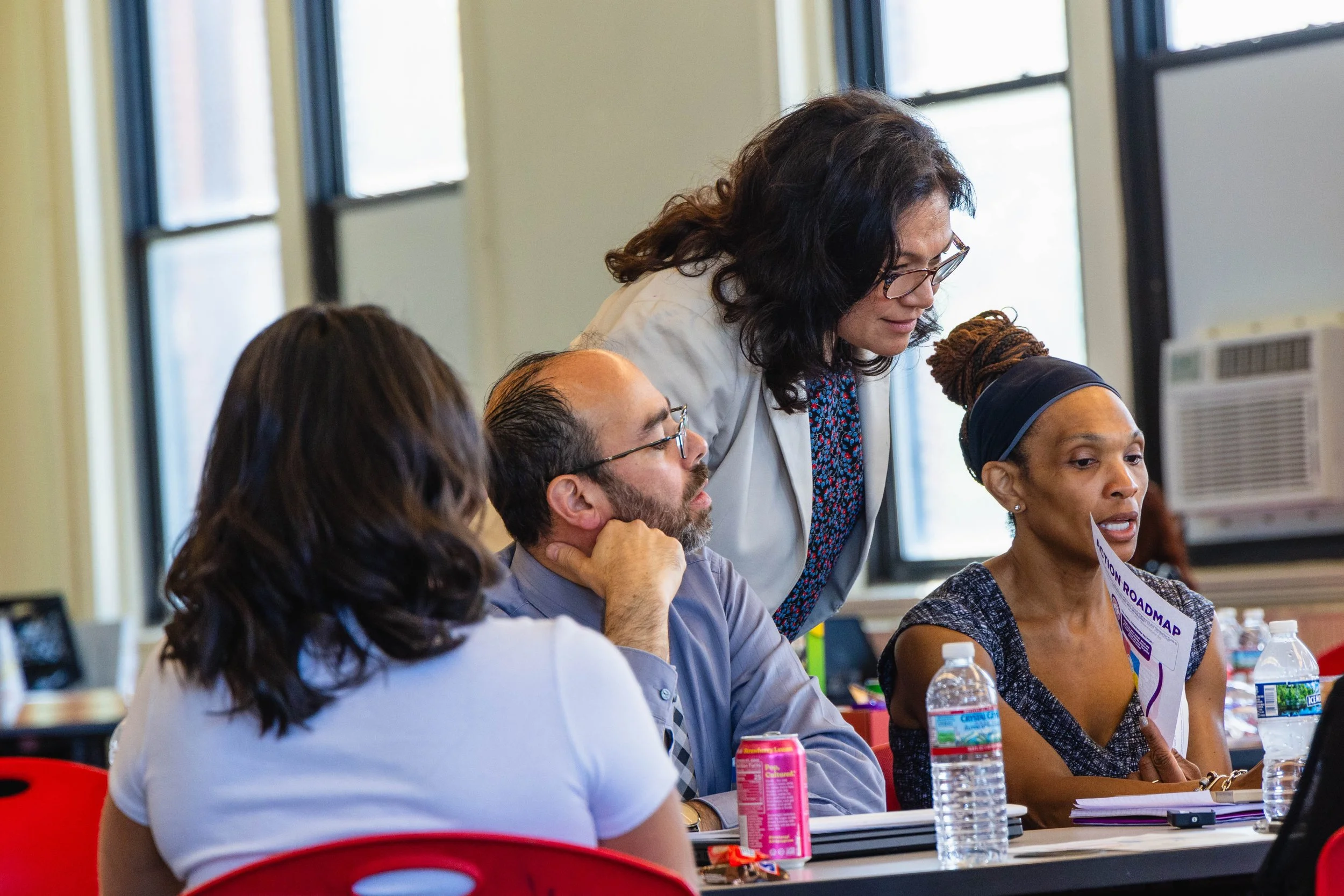How Chicago Public Schools is Transforming Education Through Data-Driven Equity Leadership
Since 2018, Chicago Public Schools (CPS) has been writing their playbook for educational equity. With 350,000 students across one of the nation's largest school districts, CPS recognized that traditional compliance-driven approaches to equity weren't creating the transformation students needed. They partnered with the National Equity Project to try a new approach: build equity from the inside out, starting with co-creating a framework with the very people it would serve, and scaling through deep network partnerships that demonstrate the power of cycles of inquiry.
In 2019-20, NEP worked closely with CPS's Office of Equity to support the development of the district's Equity Framework, a comprehensive approach to ground the district in shared values and language, asking essential questions about why disparities persist and what role each person plays in advancing equity.
But frameworks alone don't transform educational experiences. Deep, sustained partnership and collaborations with individual networks and schools have demonstrated what's possible when data collection becomes a catalyst for authentic change.
From Data to Action
NEP's partnership with CPS is rooted in cycles of inquiry, a systematic process that treats data as an ongoing conversation. "We want to ensure that people can see themselves living into what we're evaluating and that it has applicability to them," says Linda Ponce de Leon, NEP Midwest Regional Director and lead CPS coach.
CPS administered Catalyze, an organizational conditions survey first developed for use in the BELE Network by the Learning and Development Group (LDG) at the University of Chicago Consortium on School Research in partnership with PERTS, NEP and others. The survey measures the school conditions that support educators to engage in equitable and supportive practices. When data revealed that transformative equity was consistently the lowest-scored condition among Network 7 principals, Network Chief Antonio Acevedo didn't mandate training sessions. Instead, he worked with principals to design their own learning experiences. "We did a lot of activities to try to get to those conditions, and it was designed with the principals," Acevedo explains. "They would work in groups and brainstorm, and from there, we co-created next steps." It took time; scores didn't shift much in the first couple of years, but by the third year, that metric finally moved upward.
"When we think about inequitable spaces, it's important for us to recognize the power that comes with measurement,” says Dr. Casta Guillaume, NEP's Manager of Research, Measurement, and Evaluation. “Who gets to decide what we measure in terms of determining if a space is equitable, if students are having equitable experiences within it, or whether or not the adults in a space feel as though they're empowered to do so." By making data collection a collaborative process, schools across CPS are learning to redistribute power in ways that challenge traditional hierarchies.
For instance, in a student survey administered at Network 7’s Herzl Elementary, students were asked to share one thing they liked about their school and one thing they wanted to change. One student wrote:
"The thing about Herzl that I like is anytime a student or scholar asks to change something, they listen and change it."
Looking Ahead: From Proof of Concept to District-Wide Scale
After over seven years of partnership demonstrating the impact of using cycles of inquiry to shift conditions, CPS and NEP are faced with the question of how to scale this approach across all 350,000 students in Chicago.
The current strategy focuses on expanding this approach through the UChicago Consortium’s Cultivate survey, which is used by all CPS networks to measure classroom learning conditions. By supporting more networks to engage with this data, NEP and CPS are building toward district-wide transformation.
"We're hoping that Network 7 can really have an impact on all the other networks," Ponce de León notes. “Network 7 is a model for what can be true when you focus on centering students and a commitment to condition setting."
The cycles of inquiry approach, grounded in rigorous attention to what data reveals about student experiences, is a fundamental reimagining of how educational systems can function. NEP’s longstanding partnership with CPS—from framework development to deep network coaching to district-wide data infrastructure—demonstrates that when schools commit to truly listening to students and educators, transformation isn't just possible, it's systematic, sustainable, and scalable.
As NEP continues its partnership across CPS, the lessons learned in Network 7 provide a roadmap: start with relationships, build shared language, create space for collaborative inquiry, and trust that educators, given the right tools and support, can create the equitable learning environments their students deserve.
Learn more about how the National Equity Project can support your work to create thriving, youth-centered learning environments.


